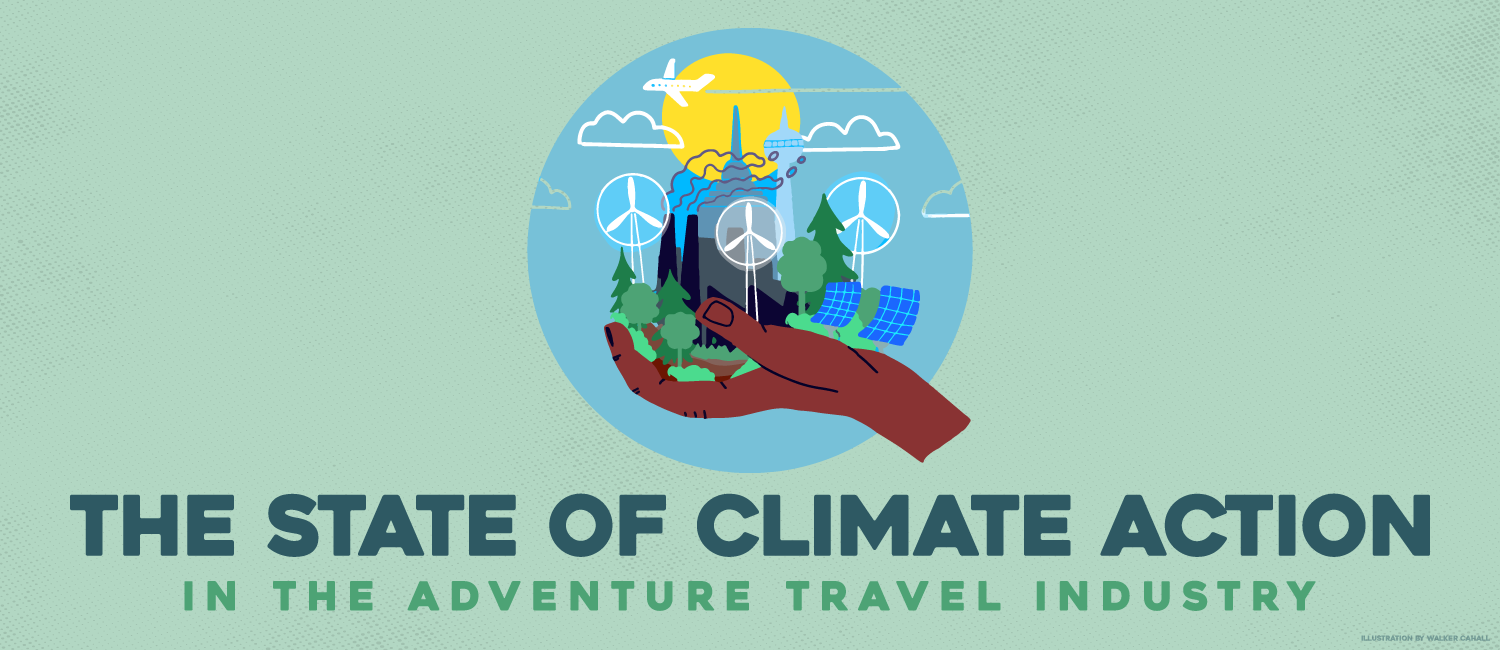From changing weather patterns to loss of biodiversity, the global impacts of climate change are unprecedented in scale, and by now, familiar news. This reality poses an especially interesting challenge to the travel industry. While the global tourism economy continues to grow, so does its carbon footprint, potentially reaching 6.5 billion metric tons of greenhouse gas emissions by 2025. Currently, tourism accounts for approximately 8% of global greenhouse gas emissions.

The stated values of the Adventure Travel Trade Association (ATTA) include a responsibility to minimize negative impacts and maximize the positive benefits to the environment in its business operations. As an organization that manages global events, education and training, and destination promotion – all of which require significant worldwide travel by staff and industry members – the ATTA recognizes the need to offset the impact on the environment and reexamine standard practices, and also an opportunity to lead by example.
According to the United Nations Intergovernmental Panel on Climate Change (IPCC), humans are now within the 10-year window of opportunity to avoid irreversible damage to our planet. In order to make the necessary changes to our businesses, we must first understand the current state of climate action within the adventure travel industry.
Establishing a baseline
The ATTA and Intrepid Travel partnered together to release the report The State of Climate Action in the Adventure Travel Industry based on a survey conducted by the ATTA in November 2019. The survey was distributed to adventure travel businesses across the globe. It focused on knowledge and attitudes related to climate change, climate action strategies currently adopted and planned for the near future, barriers to implementation and opportunities for further support.
Through the survey, adventure businesses shared how climate change is affecting their organizations. Some of the most common themes included less predictable weather patterns, more extreme weather events, wildfires, drought and rising temperatures. One respondent noted they have been forced to sell their basecamp, cut down on trips and move their entire river rafting operation upstream to where flows are more reliable. Another noted that climate change is a daily reality for them as they’ve witnessed unpredictable weather patterns, thinning of ice and the associated socio-economic impacts. It was obvious to all respondents that they need to do something — the challenge, however, was deciding on what to do and where to start. This was best summed up by one response that stated, “It’s a challenge knowing which of our relatively small steps can make the biggest impact.”
Nearly half of all respondents said they did not have a climate action strategy and 71% of respondents don’t yet measure their carbon footprint. For responding organizations that do have a partial or full climate action strategy in place, restructuring itineraries to rely less on fossil fuels was a top priority.
Adventure travel can lead the way
A key takeaway from the survey was that the adventure travel industry has an opportunity to lead the way in the face of the climate crisis, and education for both operators and consumers will be key. Said James Thornton, CEO of Intrepid Travel, “If we don’t act now, there will be no travel in the decades and centuries to come. It is our hope that this report will act as a catalyst for businesses to make considered changes in the way they operate and help those in our sector realize how imperative it is to focus our efforts on carbon reduction and action amidst the climate emergency we’re now facing.”
Learn more about the action the ATTA is already taking through the Climate Action Leadership Studio, Pledge for Climate Action, Neutral Together and Tomorrow’s Air programs.
The State of Climate Action in Adventure Travel Industry report is now available for download in the ATTA research center.
